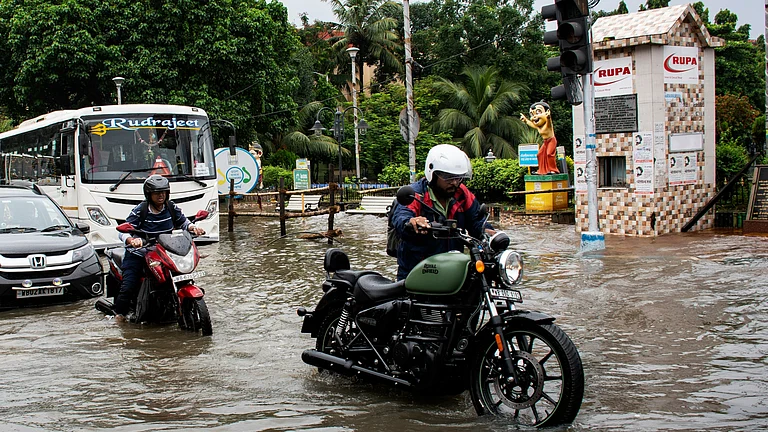About 57% of companies reported an impact on their operations within the past year, including increased costs, worker disruption and revenue losses due to climate-related events, according to a Morgan Stanley report. The increasing financial impacts are primary reason for some companies to continue pursuing emissions cuts and adapting to a warming world even amidst political turbulence, stated the survey.
Extreme heat and storms were the most common events, followed by wildfires and smoke, water shortage and flooding or rising sea levels, revealed the new report. The US has spent nearly $1 trillion on disaster recovery and other climate-related needs over the past year, according to an analysis by Bloomberg Intelligence.
Global Companies Feel Pressure
The impacts are not just limited to companies operating in the US but also impact countries globally. As reported by Bloomberg, this year’s Canadian wildfires forced evacuations of oil sands projects in Alberta, Canada, while a disastrous 2022 flood recently led Toyota to file a lawsuit for over $360 million in damages in South Africa. Australian mining companies are also adapting their operations because of extreme heat.
The Morgan Stanley report also included for the first time impacts in the Middle East, North Africa and South America.
As extreme weather becomes usual, the Morgan Stanley report highlighted how over half of global firms with strong adaptation strategies outperform peers.
A 2024 CDP report found companies incorporating climate risk into decision helped companies that actively manage supply chain emissions save $13.6 billion, demonstrating that ambitious climate action enhances business efficiency. Investing in reducing upstream climate risks can also deliver substantial financial gain for corporates, with nearly $165 billion in potential benefits, almost double the $94 billion required to realise these opportunities.
This report comes ahead of the COP30, underscoring an urgent need to prioritise climate adaptation. The world's largest companies face annual losses of $1.2 trillion by 2050 without adaptation measures, ranging from utilities burying power lines and substations to protect them from wildfires and flooding, to port operators building sea walls and restoring wetlands to prevent damage from extreme storms, reported Reuters.
































